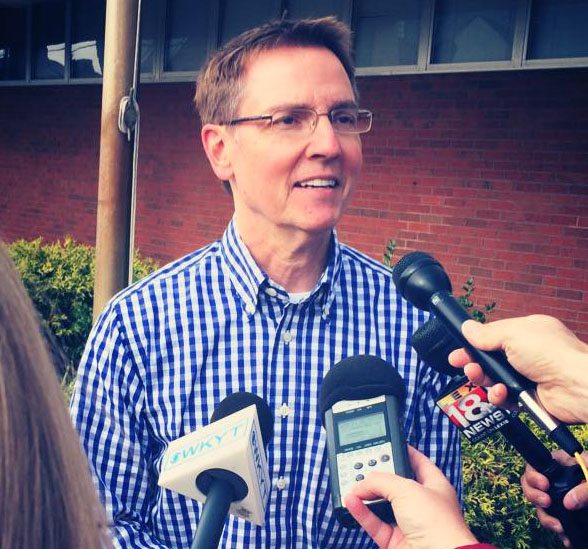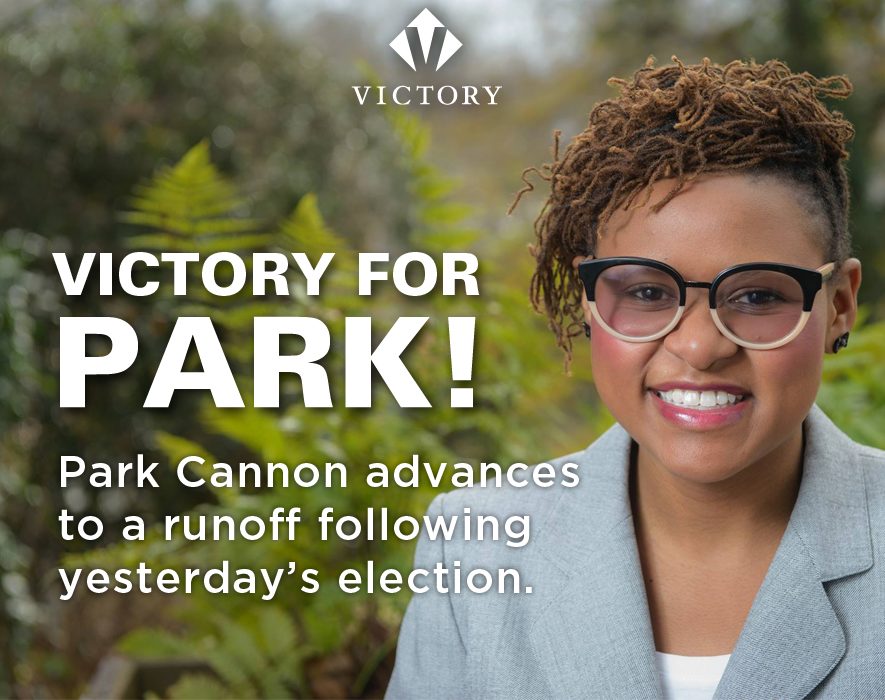
The name Daniel Hernandez may sound familiar. In 2011, as just a 20-year-old intern for U.S. Rep. Gabrielle Giffords, Daniel was credited by many for saving Giffords’ life after she was shot during a public event in Tucson. Since then, Daniel has gone on to work in Arizona politics himself, serving on the Sunnyside District School Board for five years, and is now setting his sights even higher.
Daniel is a candidate for his district’s seat in the Arizona state house. Should he win the election, Daniel will be the only openly LGBTQ person serving in the state House at a time when state legislatures are playing an even more critical role than ever in the fight for LGBTQ equality nationwide.
As one of our Spotlight Candidates, Daniel spoke with us about his past experiences and why he’s running to represent Tucson’s District 2 in the legislature.
Victory: Why did you decide to run for the state legislature?
Hernandez: There are a variety of reasons. I’ve spent five years on my school board, and as a board member, I’m driven to run because the decisions currently being made in Phoenix have negatively affected my district numerous times. Arizona consistently ranks amongst the lowest in the U.S. in terms of per-person education funding. We’re always at the bottom of the pack.
Additionally, I would be the only openly LGBTQ person in the state legislature if I were to be elected. At one time we had as many as 5 openly LGBTQ members of the legislature, but there is currently no LGBTQ representation in the statehouse. I believe it is crucial to have at least one – ideally more – LGBTQ person at the state level to not only advocate against some of the anti-LGBTQ bills being considered, but also to introduce and advocate for pro-LGBTQ and anti-discrimination in the state house.
Victory: Many people know you as the intern who saved Congresswoman Gabrielle Giffords’ life when she was shot in 2011. How has that tragedy shaped your public service?
Hernandez: There are so many issues that need my work and my attention. Reducing gun violence is certainly something I have worked for (I’ve helped lobby against extending background checks for guns in the past) and it was something I did focus on as a school board member. In that capacity, my focus was on the safety of the students and teachers in my district, and was then something I had to speak up about.
My work has and will always be about doing what’s best for the kids and families of my district, increasing opportunities available to people of color and people living in poverty in my district – working to enact change and get things done. I have focused on learning more about understanding the impacts our policies have on actual households, and how to better advocate for them and bettering my work.
Victory: How does being the only openly LGBTQ member of your school board impact the work you’re doing?
Hernandez: There have been many times where it wasn’t easy. When I was first elected to the school board, they tried to recall me. And their efforts against me were heavily based in homophobic attacks against me. But after the recall effort failed, I was able to accomplish numerous things while on the board, and while serving as its president for a year and a half.
As president, we were successful in passing comprehensive sex education legislation for the first time ever in our district, allowing us to provide basic and necessary information to our students regarding sexual health. However, Arizona has ‘no promo-homo’ laws that have been on the books since the 80s and early 90s, that prohibit us from providing basic LGBTQ-oriented sex ed in our schools. So this is just one example of how very limited we are in what we’re able to accomplish on the local level, based on what bills are or are not coming out of the state legislature.
But while I was president, I was able to accomplish five major things in that year and a half: we opened a new school focusing on arts integration and STEM, we hired a new superintendent, we developed a strategic plan for our district for the first time in 15 years and we conducted a compensation study for our school employees. For me, this underscores the importance of what can be accomplished when we come together and get a lot of things done simultaneously, instead of working against one another.
Victory: How have you responded to the homophobic attacks that get made against you?
Hernandez: You develop a really thick skin. I’m frequently reminded of the Eleanor Roosevelt quote of having “skin as thick as a rhinoceros hide” that Hillary Clinton often refers to as well. What I think is most important is how you respond to these types of attacks. I chose not to get down in the gutter like the people attempting to recall me, but rather I focused on the work, and that’s what’s really important. Like I said, we were able to accomplish five really important things during my short time as president because I found ways to work with the people who had opposed me and focus on what truly mattered for our job.
Victory: In your eyes, what is at stake in this election for LGBTQ people living in Arizona?
Hernandez: Not having a voice at the state-level that understands what it’s like to be openly LGBTQ, or closeted even, in Arizona. About 15 years ago, we had decent LGBTQ representation at both the state and local levels. Now we have a few city councilmembers here and there, but nowhere near what we used to have in terms of LGBTQ representation.
Especially at the state level, this is a critical time for LGBTQ equality in Arizona. There are numerous bills coming before the state legislature like religious freedom legislation and a bill regarding the adoption eligibility of LGBTQ couples. In addition to the issues of these bathroom bills that we’re seeing across the country and protections against discrimination based on gender identity and expression – we need elected officials who can articulate in smart and passionate ways on behalf of LGBTQ people and can work to build coalitions within the state legislature to prevent some of these bills from being passed.
Victory: How can we encourage more young LGBTQ individuals to run for office?
Hernandez: By showcasing and highlighting that people have and can be successful. The number one question I always get is: Who is your role model? We need to be able to point to people on all levels who can satisfy that question who are qualified, dedicated and openly LGBTQ.
That is why I believe the work that Victory does is so very important and necessary. Not only does Victory help people run, but it helps to prepare them before they ever run, providing them with the skills and resources necessary to launch a successful campaign.


